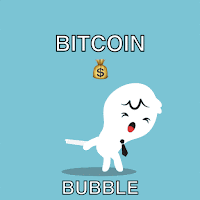"There is also a third possible problem which was raised by French virologist and Nobel laureate Luc Montagnier, MD in May 2021. In an interview with Pierre Barnérias of Hold-Up Media, Dr. Montagnier said he believed that the mass vaccination programs for COVID may actually be causing SARS-CoV-2 mutations like the Delta variant and, thus, prolonging the pandemic"
A recent study published by King's College in London, which operates the ZOE COVID Study app to monitor COVID infection and vaccination rates, found that, as of July 15, 2021, there was an average of 15,537 new daily symptomatic cases of COVID-19 among partly or fully vaccinated people in the United Kingdom—an increase of 40 percent from the previous week's total of 11,084 new cases.1,2
Infections in Vaccinated People in U.K. Are Outpacing Infections in the Unvaccinated
The Zoe COVID Study, led by epidemiologist Tim Spector, MD, of Kings College in London, estimated that there were 17,581 new daily symptomatic cases of COVID-19 in unvaccinated people, or 22 percent less than the previous week's total of 22,638 new cases.
According to a press release issued by the study's authors, "With cases in the vaccinated group continuing to rise, the number of new cases in the vaccinated population is set to overtake the unvaccinated in the coming days."3,4
On July 17, the U.K.'s Health Secretary, Sajid Javid, announced he had tested positive for the SARS-CoV-2 virus despite having received two doses of the AstraZeneca/Oxford University's experimental AZD1222 COVID vaccine on Mar. 17 and May 16.5 In a message posted on Twitter, Javid wrote:
"This morning I tested positive for COVID. I'm waiting for my PCR result, but thankfully I have had my jabs and symptoms are mild."6
With a population of more than 66 million people, two-thirds of adults in the U.K. have received COVID-19 vaccine, representing a total of 82,592,996 vaccinations as of July 20. Some 46,349,709 Britons have received the first dose and 36,243,287 have gotten the second dose. The country is not vaccinating children.7
The U.K. is among the most highly vaccinated countries in the world, but it is experiencing a third wave of coronavirus infections reportedly largely due to the spread of the Delta variant of the virus.8,9 Other highly vaccinated countries like Israel are also experiencing a new wave of coronavirus infections due to the Delta variant.
Most Infections in Israel Are Among Vaccinated People
In Israel, about 60 percent of the country's population of 9.3 million has received at least one dose of a COVID vaccine. About 85 percent of adults in Israel have been vaccinated. Yet most of the new coronavirus infections are occurring in vaccinated people.10
In early-July, former Health Minister Chezy Levy, MD confirmed that "55 percent of the newly infected [people in Israel] had been vaccinated."11
There has also been a concerning rise in the number of vaccinated people in Israel being hospitalized. An article in The Jerusalem Post last week noted that the Israeli Health Ministry reported 124 people had been hospitalized for COVID-19 on July 20 and that 65 percent of them were fully vaccinated. Of the 124 people, 62 were in serious condition and 70% of those patients were fully vaccinated.12
Earlier this month, the Health Ministry estimated that the Pfizer/BioNTech's BNT162b2 COVID biologic was only 64 percent effective in preventing symptomatic infections of COVID-19, specifically those caused by the Delta variant. But the effectiveness rate for Pfizer's experimental COVID vaccine in preventing infection (and transmission) could be lower.13
"We do not know exactly to what degree the vaccine helps, but it is significantly less," said Israel's Prime Minister Naftali Bennett.14
Infections in Chile, Seychelles and Mongolia Mostly in Vaccinated People
Another example of a highly vaccinated country which has been experiencing a new outbreak of coronavirus infections mostly among its vaccinated population is Chile. Of the thousands of new coronavirus cases being reported daily in that country, 80 percent of them are in vaccinated people. Chile has fully vaccinated 55 percent of its population.15
The examples of the U.K., Israel and Chile, as well as other highly vaccinated countries like the Seychelles and Mongolia experiencing coronavirus infections mostly within the vaccinated segments of their populations pose a dilemma.16 The governments of these countries have to decide if the problem is that not enough of their people have been vaccinated, or that the vaccines are simply not as effective as initially assumed they would be.
Could Vaccinations Be Causing Rise in Infections?
There is also a third possible problem which was raised by French virologist and Nobel laureate Luc Montagnier, MD in May 2021. In an interview with Pierre Barnérias of Hold-Up Media, Dr. Montagnier said he believed that the mass vaccination programs for COVID may actually be causing SARS-CoV-2 mutations like the Delta variant and, thus, prolonging the pandemic.17
Dr. Montagnier explained that in each country that undertakes a mass vaccination campaign, "the curve of vaccinations is followed by the curve of deaths." He said that the COVID vaccines create antibodies that force the virus to "find another solution" or "die," adding that it is the variants that "are a production and result from the vaccination."18
Dr. Montagnier's views are admittedly controversial. The thought that vaccinations may actually be exacerbating the COVID pandemic is perhaps too difficult a concept for government officials to consider. But this possibility should not be dismissed outright.
Source: The Vaccine Reaction | https://thevaccinereaction.org/2021/07/coronavirus-spreading-among-the-vaccinated-in-highly-vaccinated-countries/







